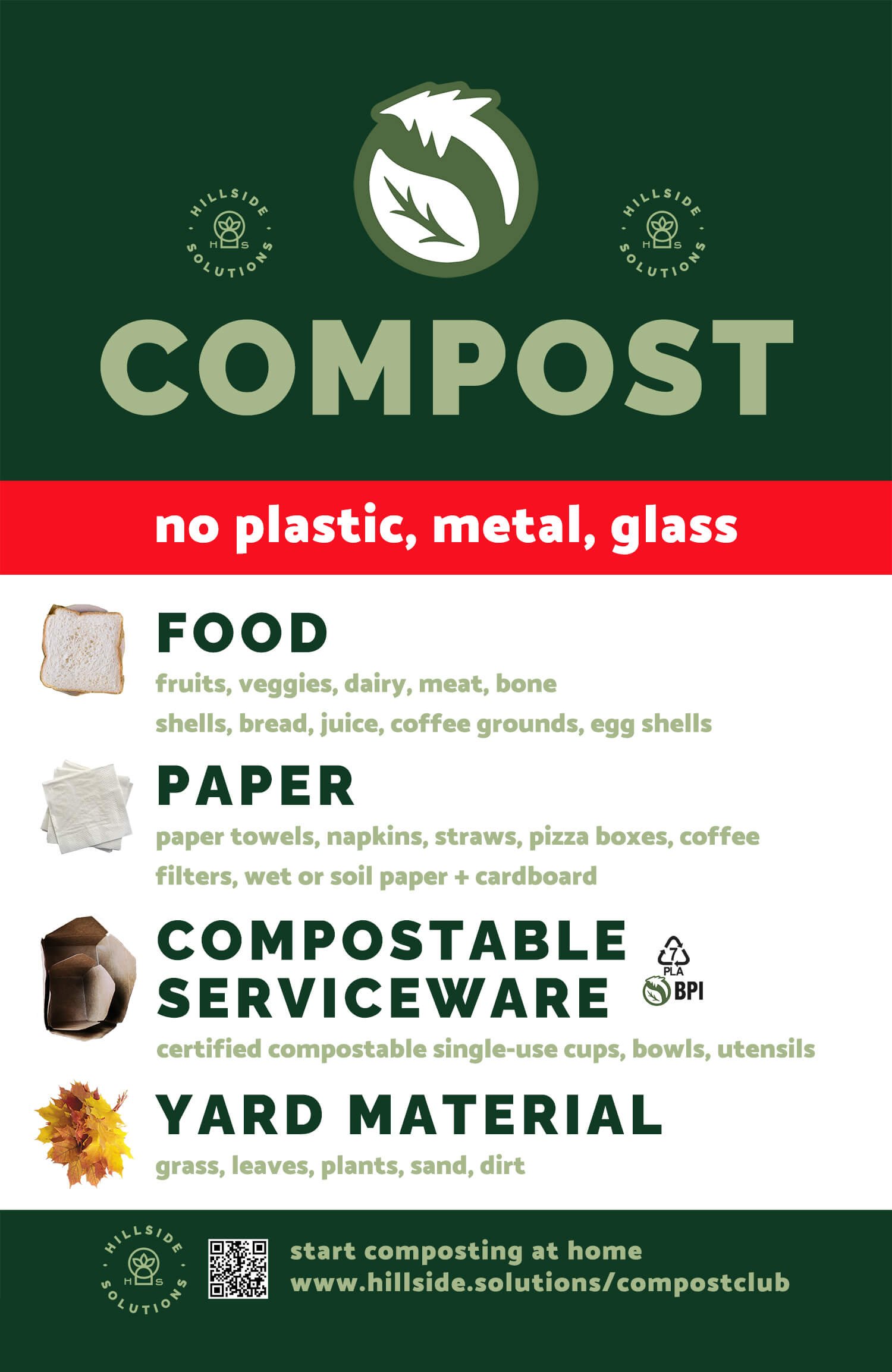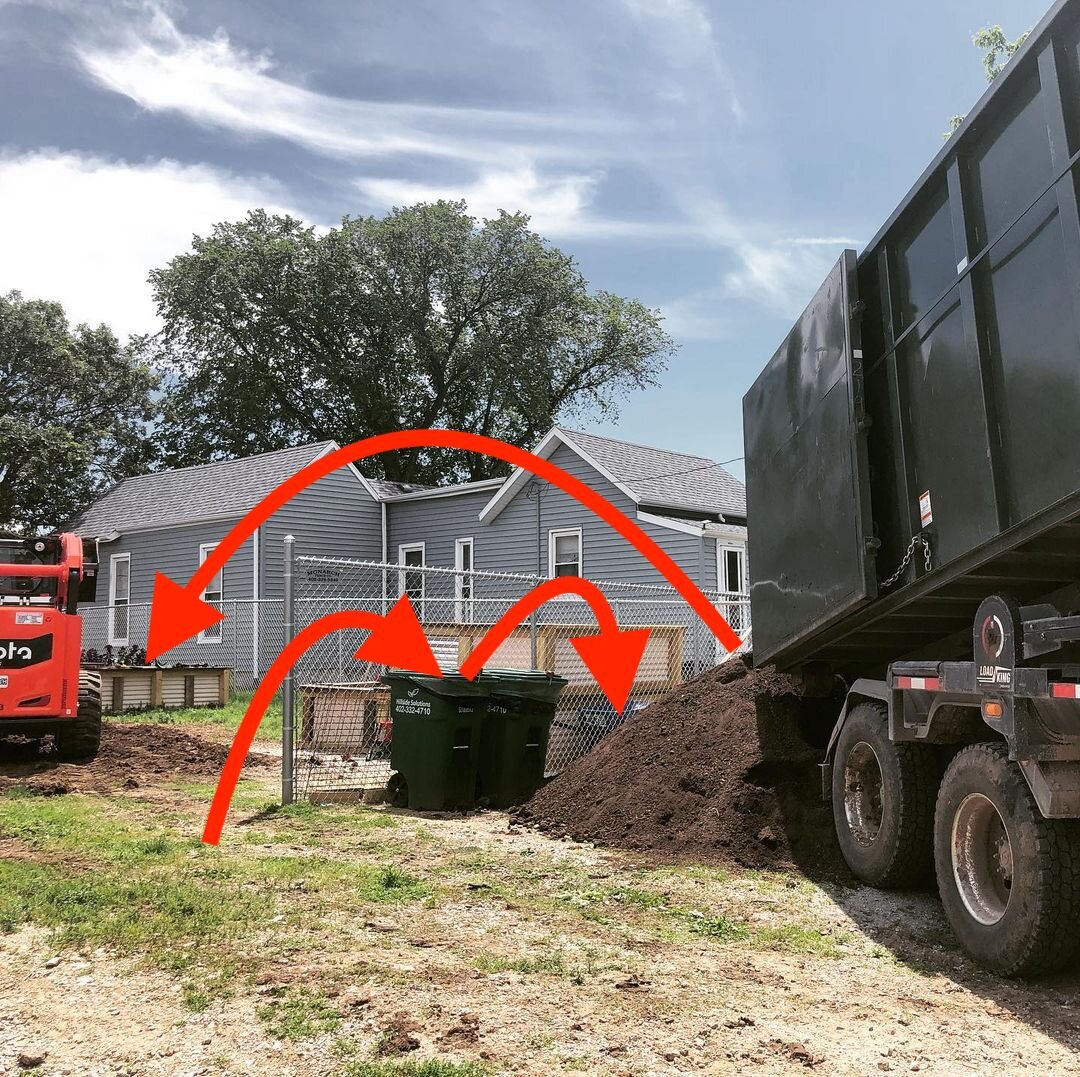STEP 8
Composting
THE PROBLEM: While people understand the need to reuse things that humans make (aka recycling), now we need to engrain the need to reuse things that nature makes (aka composting). When compostables go to a landfill, it produces the climate-warming gas called methane, produces a toxic sludge that can potentially get into our waterways, and shorten the lifespan of our landfills.
THE SOLUTION: As demonstrated wonderfully in the Kiss The Ground film on Netflix, we now know that growing things without the use of tilling or chemicals is the best thing we can do to reverse climate change. Our finished compost replaces chemicals, and when you participate in composting, you reduce your carbon footprint and link together the circular food system of soil to plants, plants to consumption, and food waste back to the soil.
INSIDER TIP: There’s a difference between what you can compost at home in your backyard, and what can be composted with us. Learn about at-home composting.
BONUS MONEY SAVING TIP: Donate your food for free instead of pay us to compost it. Saving Grace Food Rescue partners with restaurants and larger food producers. They’ll pick it up and drop it off the same day to local shelters. Plus laws protect ya from being sued over spoiled food.
Beginner’s guide on industrial composting with Hillside Solutions.
ACTION: TAKE THESE IMPLEMENTATION STEPS
This section has some affiliate marketing links. We make a small percentage from a sale when you purchase using our links.
Get Bags
Purchase our preferred BPI-certified compostable bag online now with Earth Hero’s carbon-neutral shipping. Or contact us if you need a case or more on a monthly basis.
Download Poster
Download this and other posters from our custom-made collection. We recommend printing at a print shop that can do 11x17 inches and a thick lamination. See our hack video for how to save when printing at Kinko’s.
What Happens to Finished Compost
We bring your compostables to our Soil Dynamics Composting Farm in Ashland, NE where it breaks down into nutrient-rich soil before going back into our community to help farmers, landscapers, and gardeners (or back to the business itself) to grow plants & foods without the use of chemicals.




